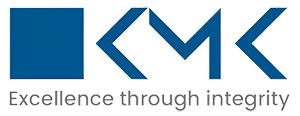Top Cybersecurity Best Practices for U.S. Accounting Firms Managing Client Financial Data in 2025

For U.S. accounting firms, managing confidential client information is more than a core function—it’s a serious responsibility. In 2025, that responsibility comes with increasing cyber risks, regulatory scrutiny, and client expectations around financial data protection.
From social engineering to ransomware and phishing, cybercriminals continue to target CPA firms and outsourced finance providers. Why? Because the data stored—social security numbers, tax IDs, bank account information, payroll details—is a goldmine for attackers.
In this evolving threat landscape, proactive cybersecurity best practices are no longer optional. They are essential.
Let’s explore the top strategies U.S. accounting firms must adopt in 2025 to ensure robust client data security and maintain client trust.
Implement Multi-Factor Authentication (MFA) Firmwide
Relying on passwords alone is no longer sufficient. One of the most effective cybersecurity best practices is enabling multi-factor authentication (MFA) for all users—staff, contractors, and clients.
MFA requires users to verify their identity with a second factor (like a code sent to their phone) in addition to a password. This simple layer dramatically reduces unauthorized access, especially in remote work setups.
Why It Matters:
Most data breaches result from compromised credentials. With MFA in place, even stolen passwords are useless without the second authentication layer.
Encrypt All Client Data—In Transit and At Rest
Data encryption is a cornerstone of financial data protection. Whether client information is being emailed, uploaded, or stored in a database, encryption ensures that data is unreadable to unauthorized users.
Use bank-grade encryption standards (AES-256 or higher), and ensure any cloud software your firm uses also complies with secure encryption protocols.
Pro Tip:
Don’t assume your tools encrypt everything by default. Confirm with your vendors that accounting cybersecurity is built into their platforms, including backups and file transfers.
Conduct Regular Cybersecurity Audits and Penetration Testing
An effective way to stay ahead of attackers is to test your own defenses. Routine cybersecurity audits and third-party penetration testing simulate real-world attacks to identify weak points in your firm’s system.
This process helps U.S. accounting firms:
- Patch software vulnerabilities
- Update misconfigured firewalls
- Strengthen data access policies
- Maintain readiness for evolving threats
In 2025, this is not just a good-to-have—it’s often expected during client onboarding or compliance checks.
Adopt Secure Client Portals and File Sharing Platforms
Avoid sending sensitive financial documents over email. Instead, use secure client portals that allow for encrypted document exchange, messaging, and task management.
Modern portals also support activity tracking, time-stamped audit trails, and permission-based access—critical for client data security and regulatory compliance.
Trusted Tools Include:
- Suralink
- Liscio
- ShareFile (by Citrix)
- Karbon (for workflow + security)
If you’re working with an outsourced accounting partner, make sure they provide similar secure access channels.
Provide Cybersecurity Awareness Training for All Staff
Employees are often the weakest link in accounting cybersecurity. Whether it’s clicking on a phishing link or using weak passwords across platforms, human error fuels the majority of data breaches.
Regular training helps staff:
- Identify suspicious emails and links
- Avoid shadow IT (using unauthorized software)
- Understand proper data handling procedures
- Follow device and network safety protocols
For U.S. accounting firms:
Make this part of your onboarding, and refresh quarterly. Compliance doesn’t work if it’s just a document—awareness drives action.
Limit Data Access Based on Roles and Responsibilities
Not every team member needs access to every file. Implement role-based access controls (RBAC) to ensure sensitive client data is only available to authorized users.
For example:
- Interns don’t need payroll access
- Tax preparers don’t need audit reports
- Partners need full visibility, but within secure zones
This segmentation reduces your risk exposure in case of compromised credentials or insider threats.
Keep All Systems and Software Updated
Outdated software is a hacker’s playground. Make sure operating systems, antivirus programs, accounting software, and plugins are updated regularly—ideally via automated patching.
If your firm uses SaaS-based tools, verify the vendor’s update schedule and incident response process.
This is a foundational part of cybersecurity best practices, especially in firms using remote desktops, virtual servers, or offshore teams.
Ensure Compliance with SOC 2 and Other Standards
Whether you’re a solo CPA or a multi-office firm, demonstrating alignment with industry standards like SOC 2, ISO 27001, or the IRS’s WISP (Written Information Security Plan) is now expected by many clients.
Even if you’re not formally audited, following these frameworks improves client data security and gives you a roadmap for continuous improvement.
And if you’re working with a vendor or outsourced accounting partner, insist on reviewing their compliance documentation.
Create and Test a Data Breach Response Plan
No system is 100% bulletproof. The real question is—are you prepared if something does go wrong?
A documented incident response plan allows your firm to act quickly in the event of a:
- Phishing or ransomware attack
- Insider data leak
- System compromise or outage
Include internal responsibilities, client notification procedures, recovery steps, and post-incident audits.
In 2025, even regulators want to see that U.S. accounting firms can respond swiftly and transparently to breaches.
Work Only with Trusted Outsourced Partners
If you work with offshore bookkeepers or outsourced teams, verify their financial data protection policies before you onboard them.
At KMK, we align with global security standards, offer SOC 2-aligned processes, and use encrypted tools to protect your client data. Whether we’re handling month-end close, tax preparation, or fund accounting, client data security is always at the forefront.
Read Also: SOC 2 Compliance and Outsourced Finance: What U.S. Companies Must Understand
KMK’s Commitment to Cybersecurity for U.S. Accounting Firms
At KMK, we go beyond delivering high-quality accounting support—we embed cybersecurity best practices into every process.
Why firms choose us:
- Encrypted client collaboration tools
- Trained staff with restricted access policies
- Documented SOPs and internal compliance audits
- Secure offshore infrastructure built for U.S. accounting firms
We help CPA firms, CFOs, and fund managers scale safely—without compromising client trust.
Conclusion
In 2025, U.S. accounting firms must treat cybersecurity as a top-line strategic priority. As threats become more sophisticated, adopting these cybersecurity best practices is the only way to ensure client trust, stay compliant, and maintain business continuity. From MFA and secure portals to SOC 2 alignment and employee training, every step counts. Still unsure where your security gaps are?
That’s where KMK comes in. Let us help you protect what matters most—your client’s trust and your firm’s reputation.
About the Author
Bert Wilson serves as our U.S. representative and client success manager, specializing in U.S. tax and accounting services. With expertise in tax compliance, financial reporting, and outsourced accounting solutions, Bert helps clients navigate complex financial challenges. Holding a Master’s degree in accounting and having obtained his C.P.A. license from the state of Colorado, he ensures client expectations are exceeded through tailored solutions and seamless collaboration with our India team. Passionate about building relationships, Bert enjoys both early mornings and outdoor sports, embodying a proactive approach to success
serves as our U.S. representative and client success manager, specializing in U.S. tax and accounting services. With expertise in tax compliance, financial reporting, and outsourced accounting solutions, Bert helps clients navigate complex financial challenges. Holding a Master’s degree in accounting and having obtained his C.P.A. license from the state of Colorado, he ensures client expectations are exceeded through tailored solutions and seamless collaboration with our India team. Passionate about building relationships, Bert enjoys both early mornings and outdoor sports, embodying a proactive approach to success
Let’s Take Our Conversation Ahead
KMK is a top outsourced accounting and tax service provider. We offer end-to-end accounting and tax services for small to mid-sized businesses, with a team of 875+ professionals, including certified public, chartered, and staff accountants.
USA:
651 N Broad St Suite 205, Middletown, DE 19709, USA
Phone: 310-362-2511
India:
300, Sankalp Square-3B
Sindhu Bhavan Marg,
Ahmedabad, Gujarat 380058
For Career: 91-98240-42996
Developed by Bluele | Copyright © 2026 | KMK Ventures Private Limited. | All Rights Reserved


